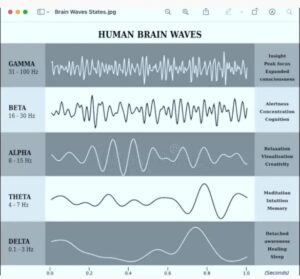Counselling Coaching & Therapy
Select which booking you need:
TRTP
(The Richards Trauma Process)
Our most popular service The Richards Trauma Process helps clients overcome historically stored trauma/emotional pain, working from a root cause/subconscious belief level.
The therapy process is fully guided and is gentle, fast, effective, and avoids re-traumatising. This 3 stage process can be completed within a month to get life- long results.
You may have certain triggers and emotional responses which are not just bad behaviour, but connected to a traumatic event that was not resolved or properly processed in your body and mind. You may have worked on issues but certain negative patterns keep repeating. It could be the effects of unprocessed past trauma that is responsible.
WHY TRAUMA THERAPY?
“Trauma” is not what happens to you but what happens in your mind and body as a result of an event which was perceived as distressing at the time but not fully processed. Even some of those childhood experiences which we think we should have “got over it by now” may be still affecting current behaviour as a result.
It could be a specific event or a series of childhood experiences that contribute to trauma and still affect the person later in life.
TRTP™ does not merely address the symptoms of trauma. It deals with the underlying cause of the problem, removing the emotional charge from the past and returning the person to a state of empowerment, returning the sympathetic nervous system to calm.”
Credit: The Richards Trauma Process
Is TRTP suitable for you?
TRTP is suitable for clients who have the following symptoms:
• Anxiety or Chronic Stress Triggers
• Depression
• PSTD
• OCD
• Addictions of Gambling, Food, Shopping
• Drug or Alcohol addictions post rehab unless already abstaining
How Are Sessions Conducted?
TRTP is a 3 stage process and is only effective if all 3 stages are completed.
Sessions are prepared in advance and personalized to the client’s profile and history.
Appointments are spread out over a period of approximately one month.
Complimentary follow up calls 1-3 months later to review improvements and progress are included.
Confidential sessions in the privacy of your home or business
Therapy/coaching/counselling consults are conducted via Zoom/tele health video conferencing from the comfort of your own home or business.
Available Australia wide.
Also available for clients living in New Zealand, United Kingdom, South Africa, Canada and United States.
What Maria's Happy Clients Say
“My life is far better after Richards therapy”
“My life is far better after Richards therapy. I don’t feel angry all the time. I am free of it.”
“The results have been tremendously effective”
I felt thoroughly prepared for the sessions by Maria’s thoughtful pre-counsel. Each session was powerful, and I felt safe and secure and confident in Maria’s professional skills. The results have been tremendously effective bringing lasting healing to a very traumatic event in my life. I highly recommend Maria as a compassionate professional and gentle therapist using TRTP for outstanding lasting impact.
“A month later after finishing the TRTP therapy my entire life turned around”
Before I started the process with Maria I was in shock and grief over losing everything I valued. I was a victim of a devastating fire that completely destroyed all my worldly goods. They were burned to nothing but ashes. Only by God’s grace and mercy did I escape with my life. Maria helped me to process the trauma and refocus my life on getting back on track. A month later after finishing the TRTP therapy my entire life turned around.
I got my inner strength and hope back. I got connected to a great vibrant church, made some great friends, got a new job and was able to replace many things that I lost in the fire. I am so grateful to Maria and the TRTP program and would recommend anyone who has gone through a life devastating trauma of any kind to take heart. There is Hope and you can find a life after the trauma. Contact Maria she has what it takes to help you process the hurts of the past and help you start making the right decisions that will give you hope and a better future.
“I have suffered the effects of chronic PTSD since childhood and depression from a young age”
I have suffered the effects of chronic PTSD since childhood and depression from a young age.
For most of my life I felt like I was living in a giant bubble. No tomorrow, no yesterday, just living in a state of “now”.
My mind was extremely foggy. My short and medium term memory was all but non -existent. And horrific night terrors almost every night. Thrashing around, screaming out and waking up utterly exhausted.
Maria’s heart is genuinely in her therapy, and my life has been forever changed since.
I have my clarity of mind back, sharp and crisp. I no longer suffer from depression, and the night terrors stopped immediately.
I have a quality of life I didnt know I could experience.
My self image has beyond dramatically stronger also.
I can’t recommend Maria enough. She is wise, sincere and has a genuine heart for people.
The therapy is nothing short of powerful and life altering.
The positive instant changes in my life have been dramatic.
I am forever thankful.
“It enabled me to be free from lifelong inhibitions”
TRTP had a profound effect on me. It enabled me to be free from lifelong inhibitions, and emotional issues that I’d been carrying fir a very long time. What I love is the feeling that I’m free to be the real me. I had tried a lot of therapies in the past but this one actually works!! and with Maria’s help I was able to resolve them quickly. Thank you Maria, I’m so glad I found this.
Mainstream talk therapy including cognitive behavioural therapy, definitely has its place. However over the past decades experts have come to realise that to get to our underlying survival physiology (which drives the majority of our behaviours) we must get to the body and unconscious where much of this is stored or mobilised.
The latest neuroscience has even found that actual brain activity is different in those clients who have had trauma which is still affecting their current state/behaviour, even if the distressing incidents took place decades ago.
The power of negative beliefs over us can be overwhelming. For example in modern culture, corporations aim at “problem -crisis- solution” as a marketing ploy to sell products. It’s no wonder that even in a good functional family and having a positive environment, being bombarded by this alone over years can result in feelings of inadequacy eg: I’m too fat, I’m too ugly, I have an embarrassing car, my house is not big enough, I’m too poor to enjoy any reasonable type of holiday, I’m not successful enough, I am a failure etc…….
The purpose of therapy that reaches to the unconscious mind, is to uninstall those negative self beliefs and unconscious core beliefs about the world. Then the unconscious mind can reorganise itself back to the way it was without those negative programs.
Trauma is not what happened to us, but what happened inside us as a result of what happened to us.
“Trauma is the invisible force that shapes our lives. It shapes the way we live, the way we love and the way we make sense of the world. It is the root of our deepest wounds” ~Gabor Maté
“Trauma” in the therapy context is better described as distressing events rather than physically catastrophic incidents. It is subjective and personal and not an objective standard as each person is affected differently by what they perceive to be distressing.
Trauma doesn’t have to as dramatic as being held at gun point during a robbery, but can arise from a single incident such as being bullied at primary school.
Clients often seek counselling or therapy because they have relationship issues or anxiety or depression, or they may have what they describe as chronic fatigue and fibromyalgia or other body pain which their doctor cannot find a diagnosis for.
These are more than often not the issue, but the symptom. The unconscious mind is powerful and can even cause real or perceived illnesses (or psychosomatic illnesses with real physical symptoms), regardless of whether it was intentional or not.
Memories of distressing events if not processed and stored properly at the time, can cause ongoing problems as the nervous system and body system has never really returned to calm afterwards in relation to such a trigger Mind Renew therapies aim to assist clients to process those memories properly once and for all, with the aim that the symptoms no longer appear.
No. Our therapies operate during the time that the client is fully aware and alert. During dynamic imagining process in TRTP or speaking to the unconscious mind in EP or RTC there may be a slight lowering of brainwaves when we ask you to do imagination exercises. We do not use clinical hypnotherapy.
There is no full muscle relaxation or meditation involved in our therapy modalities. This is so even if the client is listening to the therapist and imagining scenarios. It is not a trance or deep meditation. The client is in control.
Our therapies work with your own will and your own imagination to reach areas of the mind to get to the root of the problem, which may not be easily reached with conscious cognitive thinking/intellectualizing and everyday talking/reasoning.
In comparison, hypnotherapy aims to get a client to a theta or lower brain wave state with fully relaxed muscles and the client may be more directed what to think (e.g they may be told to imagine each they put a cigarette in their mouth they feel sick). So hypnosis is more directive to the client what to do whilst they are in a very deep relaxation state.

Experience one-to-one personalised therapy
from the comfort of your own home
Featured Articles From Our Blog

WHY COUNSELLING MAY NOT WORK
IS COUNSELLING HELPING YOU? Why is it that some people are able to get their issues resolved AND move on in life after simple counselling,

What’s the Difference Between Counselling Therapy and TRTP?
An In-Depth Comparison of Traditional Counselling & TRTP When seeking treatment for mental health issues, it’s crucial to understand the various therapeutic approaches available. Traditional

Depression Neurosis vs. Neurotic Depression: Understanding the Difference
The terms Depression, Neurosis, and Neurotic Depression are often used interchangeably to describe a range of mental health conditions. While they may share some similarities,

PSTD & Depresion
During the second World War the name for PSTD was called ‘shellshock.’ Later on after the Korean War, it was known as ‘gross stress reaction.’

Overcoming Grief
Grief and bereavement mean- intense sadness related to some sort of loss, especially death (bereavement). But loss is not limited to death of a loved

Trauma and Shame
There is a close relationship between shame and trauma. Chronic trauma from past childhood abuse and/or domestic violence can contribute to unexplained feelings of shame.
Want to know more? Book a complimentary call with Maria:
You will receive a zoom link for your audio call.





